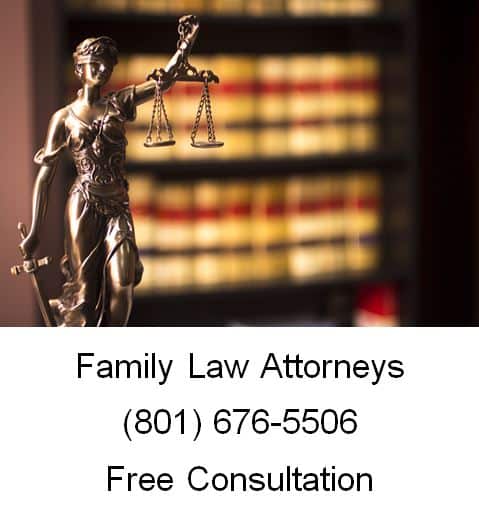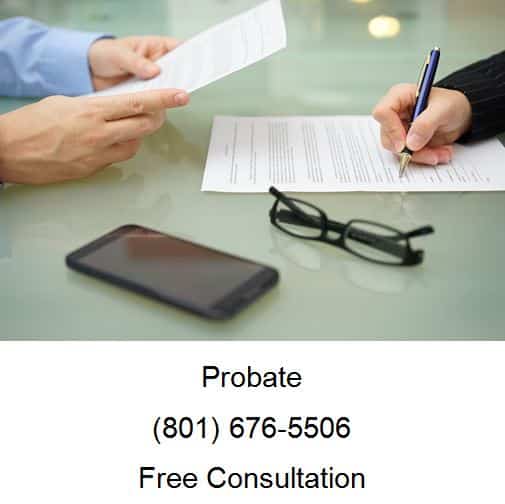
A will is a private record until the individual who made it kicks the bucket. By then, it is documented in probate court and ends up open for survey by general society. This is a part of probate lawy. You can discover the will of a perished individual by finding the fitting probate court and looking through the documents. In certain spots, for an expense, the court assistant will discover and duplicate the will for you. Regardless of whether it’s long or short, straightforward or complex, a will is an authoritative report that sets out what somebody needs to happen to his property after he kicks the bucket. The individual causing the will to is known as the departed benefactor, and as long as he is alive, he can change the will at whatever point he prefers or repudiate it and compose another. It is a private archive and no one can gain admittance to it except if the departed benefactor needs to indicate it to him. When the deceased benefactor passes on, the will is irreversible. In any case, the deceased benefactor’s benefits don’t pass consequently to the people named in the will. Rather, somebody must document the will with the probate court and it regularly should go through a court-managed process where the departed benefactor’s property is gathered, his obligations and expenses paid and, at last, his residual resources appropriated.
The initial move toward finding the will of somebody who recently died is to figure out where she lived just before her demise. This is the place you’ll generally discover her will. Regardless of whether she really passed on while on furlough in Mexico, if her home and hearth was in Madison, Wyoming, all things considered, the individual’s will was recorded in probate court in the town she called home. Discover the telephone number of the court on the web and spot a call before you head down there. The probate court assistant ought to have the option to affirm that the will is documented in that court and give you the case number. You might discover as you search for a will that the deceased never did any estate planning. If this is true, there is no will or trust to find.
You can appear during business hours to examine or duplicate it. Some probate courts, particularly in urban regions, will look for and duplicate wills for you, for an expense. Look at the court’s site to discover what administrations the probate office offers, just as how to get to them. In certain spots, you can mail in a request structure mentioning the specific will. Then again, you may most likely request a duplicate of the record by means of the court site. Administrations differ generally among courts, yet it is surely worth a web search or a telephone call, particularly in the event that you live far away. A typical inquiry posed of bequest arranging lawyers is the way to acquire a duplicate of an expired individual’s last will and confirmation or other probate court records. Since probate documents are open court records that anybody can peruse, in the event that a will has been petitioned for probate, at that point you ought to have the option to get a duplicate of it. What’s more, with current innovation comes the capacity to find data about a perished individual’s bequest on the web, and much of the time for totally free. In any case, while you will be unable to view duplicates of the genuine will and different archives that have been recorded with the probate court for nothing (numerous courts have begun charging for the capacity to see their reports), at any rate, you ought to have the option to see a rundown of the records that have been documented, who has been named as the agent of the bequest, which lawyer the agent has procured, and the name of the judge managing the case. A few courts even rundown the names of the majority of the banks and beneficiaries of the home. This will at that point enable you to demand duplicates of the will and some other reports you are keen on survey from the probate agent’s office, or you can take a stab at reaching the agent or the agent’s lawyer for extra data.
How would you decide the proper probate court where a home is being or has been, probated? By and large, a domain is probated in the province where the perished individual inhabited the season of his or her passing, or, now and again, the area where the expired individual possessed land. Utilize the accompanying site to find the right name of the area by connecting the name of the city where the expired individual lived or claimed land through a city-district search.
When you have found the suitable province where the probate domain ought to be regulated, an online quest should be possible for that district’s probate court or probate court dockets. This can be precarious on the grounds that in certain states the probate court isn’t really called the probate court, it could be alluded to as the “circuit court,” “surrogate’s court,” “vagrant’s court,” or some other number of courts. Be that as it may, be steady. Since probate happens in every single region over the U.S., odds are you will most likely find the suitable court’s online data.
Here are a few pursuits that you can attempt:
“_________ (embed fitting name) County probate records”
“_________ (embed fitting name) County probate court”
“_________ (embed fitting name) County probate dockets”
“_________ (embed fitting name) area court records”
When you have found the fitting area and view the probate court docket on the web, as a rule the means associated with getting a duplicate of a will or other probate archive legitimately from the probate court will incorporate the accompanying:
• Showing up face to face and requesting a duplicate of the will or other probate reports, or making a composed solicitation by fax or mail if applying face to face isn’t doable.
• Paying a replicating charge for the quantity of pages that the will or other probate record contains. These expenses generally go from $1.00 to a couple of dollars for each page.
• Giving a self-tended to, stepped envelope for mailing the duplicates if the solicitation isn’t made face to face.
In the event that you don’t have any karma in finding the suitable probate court’s dockets on the web, at that point you can attempt the accompanying:
• Go to the probate court face to face and request help with finding the records. By and large, the agent will most likely look into the home data by utilizing the decedent’s legitimate name, and if a bequest has been opened, you will almost certainly see the genuine probate record and solicitation duplicates of appropriate reports.
• Call the probate court and solicit how to acquire duplicates from archives. Some probate agents will be useful, while others not really.
• Call a home arranging lawyer’s office in the region close to the material probate court and inquire as to whether they will help you in acquiring duplicates of probate archives from the nearby probate court. The workplace will no doubt charge a charge for their administrations, however on the off chance that you don’t live near the territory, this will spare you from the movement costs that will be caused to head out to the court yourself.
On the off chance that you are fruitless in the wake of attempting the majority of the above recommendations, your odds are that a probate home has not been opened for the decedent being referred to. In the event that you accept that a probate domain ought to have been opened, you ought to counsel with a home arranging lawyer in the region where the decedent lived so as to decide the majority of your alternatives.
In Utah State when somebody kicks the bucket, courses of action must be made to oversee their Estate. This incorporates managing their home, ledgers, speculations and duty undertakings, and guaranteeing that whatever they have left is effectively disseminated to those entitled. Numerous individuals leave a Will, which is a report indicating their desires in regard of the Estate. The Will right off the bat designates an Executor, who is the person with the lawful expert to manage the Estate. The Executor may need to get Probate to complete their obligations in full. It sounds self-evident, however the primary spot to look is the place the expired individual lived, as that is the place most Wills are kept. Mainstream spots incorporate a safe or secured drawers in the examination, storage room or the main room. In spite of the fact that it is significant for an Executor to find the Will, it is still unequivocally prudent to look for understanding from the perished individual’s family before looking through the house, to stay away from any charges of trespass.
In the event that the perished utilized a specialist or other expert to compose their Will, it is conceivable that they would at present be putting away the Will. In this way, in the event that you are an Executor, you will probably acquire the Will from them. On the off chance that the specialist is no longer in business, contact the Solicitors Regulation Authority. This association holds records for specialists in England and Wales. It ought to have a record of who assumed control over the specialists practice and, at last, where the Will is currently. In the event that you are the Executor of the Estate, you could approach the expired’s bank for a duplicate of the Will. The bank will generally request the demise authentication and confirmation of your ID before offering this to you.
In the first place, it isn’t constantly fundamental for an Executor to control an Estate. For instance:
• The Estate is comprised of simply money
• The property is joint property
In the event that the perished individual’s mate or youngsters have just been assigned to get resources, for example, an annuity installment or life arrangement. Second, in the event that you can’t discover a Will, it is conceivable that that the perished did not make one; in which case, the Estate would more often than not be managed by the closest relative under the Rules of Intestacy. Overseeing somebody’s Estate can be a tedious and complex procedure, all the more so as research demonstrates that about 60% of UK grown-ups admit to not having a Will. For more data see making a Will. In the event that you are searching for the Will of a friend or family member and not having much achievement, it is in every case best to look for the guidance of an accomplished proficient who can give you the correct assistance and bolster you need. When somebody kicks the bucket, courses of action must be made to oversee their Estate. This incorporates managing their home, financial balances, ventures and expense undertakings, and guaranteeing that whatever they have left is accurately dispersed to those entitled. Numerous individuals leave a Will, which is an archive determining their desires in regard of the Estate. The Will right off the bat delegates an Executor, who is the person with the legitimate expert to regulate the Estate. The Executor may need to acquire Probate to complete their obligations in full. It sounds self-evident, yet the primary spot to look is the place the perished individual lived, as that is the place most Wills are kept. Well known spots incorporate a safe or secured drawers in the investigation, upper room or the main room. In spite of the fact that it is significant for an Executor to find the Will, it is still emphatically fitting to look for understanding from the perished individual’s family before looking through the house, to stay away from any charges of trespass. On the off chance that the perished utilized a specialist or other expert to compose their Will, it is conceivable that they would in any case be putting away the Will. Along these lines, on the off chance that you are an Executor, you will almost certainly acquire the Will from them. On the off chance that the specialist is no longer in business, contact Ascent Law to see if we can help you. In the event that you are the Executor of the Estate, you could approach the expired’s bank for a duplicate of the Will. The bank will as a rule request the passing endorsement and confirmation of your ID before offering this to you.
Will Lawyer Free Consultation
If you are here, you probably have an estate, probate or will you need help with, call Ascent Law for your free consultation (801) 676-5506. We want to help you.
8833 S. Redwood Road, Suite C
West Jordan, Utah
84088 United States
Telephone: (801) 676-5506
Recent Posts
from Michael Anderson https://www.ascentlawfirm.com/can-you-get-a-copy-of-someones-will/
from
https://grum193.wordpress.com/2019/10/03/can-you-get-a-copy-of-someones-will/





